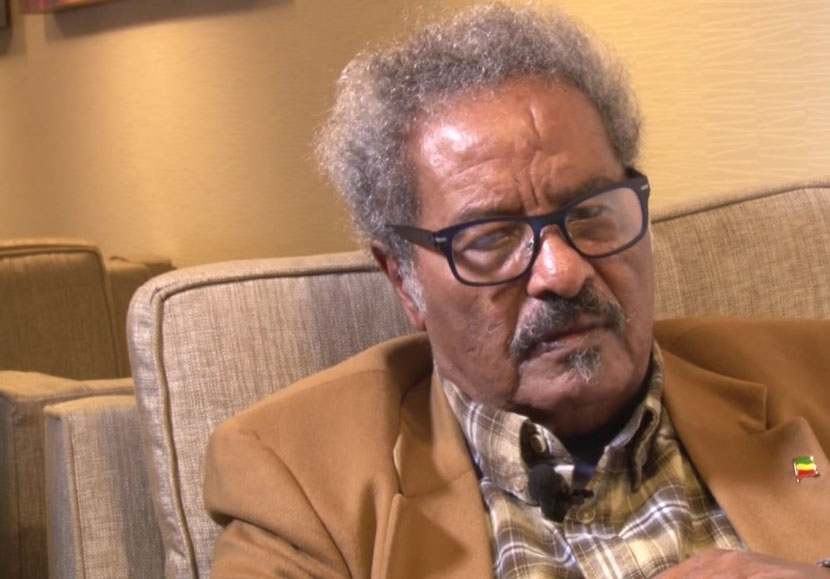
Radar | Dec 05,2020
Dec 26 , 2020
By Kidist Yidnekachew
At some point in our lives, most of us have gotten angry, lost our cool and have taken it out on someone who probably did not deserve it. This is misdirected or misplaced anger, and it usually afflicts people who are under a lot of stress. Last week, I was the target of one person under a similar condition.
It was when I was taking a walk with a friend, giggling excitedly on the road. We were caught up in a conversation when my friend mindlessly flung a piece of a gum wrapper. It was meant to be for the trash. It instead landed on a turquoise Toyota sedan.
Suddenly, we heard a horn honking and someone screaming. The owner of the car came out of nowhere, ready to start a fight.
"How dare you throw trash on my car? That's disrespectful. Who do you think you are?" he screamed.
My friend confusedly explained how she meant to put the piece of paper in the trash but how she had missed. She offered to pick it up and throw it in the trash.
"I saw you laughing at me as well,” he continued. “Were you making fun of me? "He was in full-blown argument mode.
We decided to try again and explain our position. Chiming in, I went on about how we were caught up in a conversation and did not realise where the small piece of wrapping paper would land. I tried to assure him that we did not mean harm.
"You see, we haven't seen each other in a long time and had to do a lot of catching up,” I said in the smoothest tone I could muster. He responded: "I am sick of people like you who think they can do whatever they want and step on people's shoes," he responded.
That triggered me. He was blowing the whole thing out of proportion. I replied that he should not make a big deal out of it. There and then, the guy lost it. We were each turning the emotional dial on one another. It was about to escalate.
Fortunately, a parking attendant who witnessed everything stepped in and explained how it was not deliberate. He somehow managed to calm down the guy. Finally, the man drove away in a fit of rage, giving us a menacing look.
"Don't mind him,” the mediator said. “He was angry even when he stepped out of the car. I overheard him talking on the phone, and he sounded pissed.”
He was arguing with someone about how he was wronged by a person he trusted.
That seemed to explain our bizarre confrontation. It reminded us about the displacement theory course we took in a psychology class. It is a defence mechanism where a person takes out their anger on a less threatening individual instead of the actual person who made them angry.
Like most situations in life, there is an Amharic saying for it: Ayit bebela, dawa temeta. It means to take out once anger on the sack a mouse was in because the mouse that was responsible for eating the food could not be caught.
Displacement theory is at work in most offices that deal with a large mass of people. Secretaries and security guards due to the nature of their jobs happen to easily get angry and take out their anger on the next person that walks in. It is not just these professions though. Most of us, when we have a fight with our spouses or get angry over something that happened in our homes, treat people recklessly with repressed anger and indifference.
Perhaps, nothing beats drivers in this regard.
“When you are behind the wheel, you are in control. That is a reward by itself,” a psychology teacher once said.
Then when we are forced to slow down or stop, we are losing control and, therefore, our reward, the teacher explained. That by itself creates frustration and anger. That is why we see most drivers getting angry at their counterparts in other cars when they try to pass them or get in their way. This partly explains road rage, which is very common, especially at peak hours where there is traffic congestion.
Displacing anger on a secondary target rather than the actual person might seem like a harmless thing we do in our day to day lives. However, when this becomes the typical coping mechanism and a way of dealing with anger, then it causes harm. It produces an unhealthy habit that could lead to abusive behaviour.
We have to observe, reflect on our response, and channel our anger and negative emotions properly. This means finding a healthier way of dealing with our anger using alternatives such as writing and exercising.
PUBLISHED ON
Dec 26,2020 [ VOL
21 , NO
1078]


Radar | Dec 05,2020

Fortune News | Aug 19,2023

Sponsored Contents | Aug 22,2022

Verbatim | Nov 17,2018

My Opinion | May 11,2019

Verbatim | May 25,2019

Radar | Jan 28,2023

View From Arada | Jan 03,2021

Fortune News | Jun 15,2024

Viewpoints | Dec 25,2021

My Opinion | 131967 Views | Aug 14,2021

My Opinion | 128357 Views | Aug 21,2021

My Opinion | 126294 Views | Sep 10,2021

My Opinion | 123910 Views | Aug 07,2021

Dec 22 , 2024 . By TIZITA SHEWAFERAW
Charged with transforming colossal state-owned enterprises into modern and competitiv...

Aug 18 , 2024 . By AKSAH ITALO
Although predictable Yonas Zerihun's job in the ride-hailing service is not immune to...

Jul 28 , 2024 . By TIZITA SHEWAFERAW
Unhabitual, perhaps too many, Samuel Gebreyohannes, 38, used to occasionally enjoy a couple of beers at breakfast. However, he recently swit...

Jul 13 , 2024 . By AKSAH ITALO
Investors who rely on tractors, trucks, and field vehicles for commuting, transporting commodities, and f...

Jul 5 , 2025
Six years ago, Ethiopia was the darling of international liberal commentators. A year...

Jun 28 , 2025
Meseret Damtie, the assertive auditor general, has never been shy about naming names...

Jun 21 , 2025
A well-worn adage says, “Budget is not destiny, but it is direction.” Examining t...

Jun 14 , 2025
Yet again, the Horn of Africa is bracing for trouble. A region already frayed by wars...

Jul 6 , 2025 . By BEZAWIT HULUAGER
The federal legislature gave Prime Minister Abiy Ahmed (PhD) what he wanted: a 1.9 tr...

Jul 6 , 2025 . By YITBAREK GETACHEW
In a city rising skyward at breakneck speed, a reckoning has arrived. Authorities in...

Jul 6 , 2025 . By NAHOM AYELE
A landmark directive from the Ministry of Finance signals a paradigm shift in the cou...

Jul 6 , 2025 . By NAHOM AYELE
Awash Bank has announced plans to establish a dedicated investment banking subsidiary...